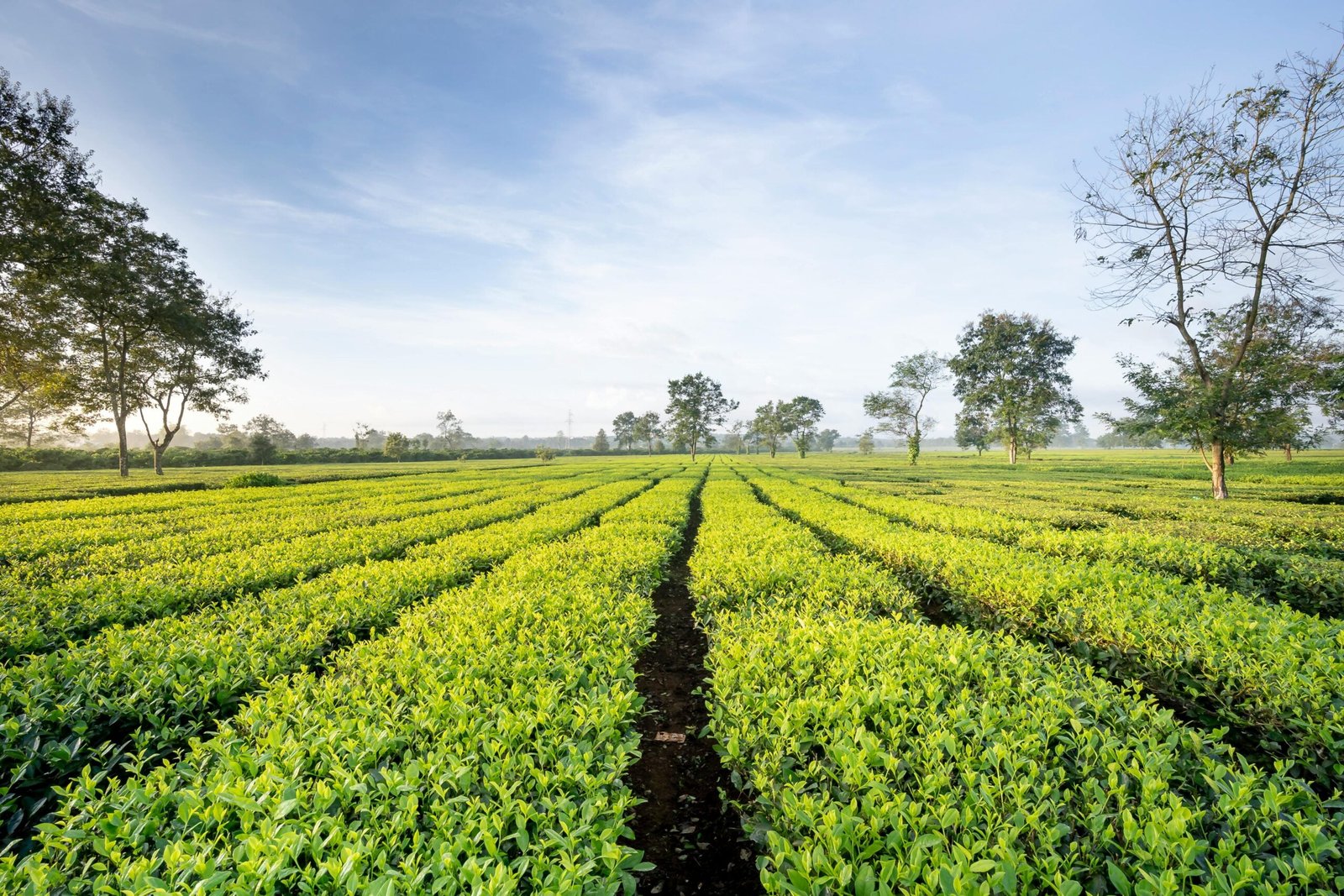
Summary of Contents
Introduction
As the demand for organic products continues to grow, organic certification in India has become increasingly important. Consumers want assurance that the products labeled as “organic” truly meet the required standards. But what exactly is organic certification, and why is it so crucial for farmers, consumers, and the agricultural industry?
Organic certification is a process that ensures agricultural products are grown and processed according to organic farming standards. These standards prohibit the use of synthetic chemicals and promote sustainable practices. For farmers, obtaining organic certification opens doors to premium markets, both in India and internationally.
In this article, we will dive into everything you need to know about organic certification in India—what it entails, how farmers can get certified, who provides certification, and the benefits it offers. We’ll also explore the specific situation in Northeast India, where organic farming is becoming a major force.
What is Organic Certification in India?
Organic certification is a formal process that guarantees agricultural products are grown and processed following specific organic standards. In India, these standards are defined by the National Programme for Organic Production (NPOP), which is regulated by the Ministry of Commerce and Industry.
The certification process ensures that no synthetic chemicals, such as pesticides or fertilizers, are used during the production of crops. It also promotes sustainable agricultural practices that help preserve the environment, improve soil health, and produce healthier, chemical-free food.

Key Requirements for Organic Certification:
- No synthetic pesticides, fertilizers, or GMOs can be used.
- Farmers must use organic methods such as crop rotation, composting, and biological pest control.
- The farm must undergo a conversion period, usually lasting two to three years, before it can be certified organic.
- Farmers must maintain detailed records of their farming practices, inputs, and produce.
Organic certification is important because it provides transparency for consumers and guarantees that the products labeled as “organic” are truly produced in an environmentally friendly and sustainable way. Without certification, there’s no way to verify whether products meet organic standards.
How to Get Organic Certification in India?
The process of obtaining organic certification in India can seem complex, but it’s designed to ensure that only genuinely organic products make it to the market. Here’s a step-by-step guide on how farmers and producers can get certified.
1. Choose a Certification Body
Farmers and producers need to select a certification body that is accredited by the National Accreditation Board (NAB). Some well-known certification bodies in India include:
- Indocert
- OneCert
- Ecocert India
- Control Union
These bodies conduct regular inspections and audits to ensure that the farm meets the required organic standards.
2. Apply for Certification
Farmers must submit an application to the chosen certification body. The application includes details about the farm’s practices, inputs, and previous use of synthetic chemicals.
3. Conversion Period
Before a farm can be certified organic, it must go through a conversion period. This period usually lasts two to three years, during which the farm must stop using synthetic chemicals and start implementing organic practices. This is to ensure that any chemical residues from previous farming practices are no longer present in the soil.
4. On-Site Inspection
During the conversion period, the certification body will conduct an on-site inspection of the farm. Inspectors will check the farming practices, review records, and take soil or crop samples if necessary.
5. Certification and Labeling
Once the farm meets all the requirements, it will receive the organic certification. The farmer can then use the India Organic label on their products, which signifies that the produce is certified organic.
Who Provides Organic Certification in India?
In India, organic certification is regulated by two major authorities under the Ministry of Commerce and Industry:
1. National Programme for Organic Production (NPOP)
The NPOP is the primary regulatory body that sets the standards for organic farming and production in India. It also oversees the accreditation of certification agencies and ensures compliance with international organic standards. Products certified under NPOP are recognized by countries like the USA and the EU, allowing for easier export opportunities.
2. Participatory Guarantee System (PGS-India)
The PGS-India is a government-led certification system that is simpler and more affordable for small farmers. Instead of third-party certification bodies, PGS-India uses a peer-review system, where local farmers form groups to certify each other’s farms. This system is gaining popularity, particularly in regions like Northeast India, where small-scale farming is prevalent.

Other Certification Bodies
Apart from these government programs, several private certification agencies are accredited to certify organic products under NPOP standards. Some of the top organic certification agencies in India include:
These agencies conduct on-site inspections and audits to ensure farms meet the standards required for certification.
Benefits of Organic Certification for Farmers and Consumers
Organic certification offers several significant benefits, both for farmers and consumers, contributing to the growth of sustainable agriculture in India.
1. Access to Premium Markets
For farmers, obtaining organic certification provides access to premium markets. Certified organic products typically fetch higher prices in both domestic and international markets. With increasing demand for organic food, certified farmers can tap into lucrative opportunities, especially for export. For example, organic tea, spices, and rice from Northeast India are highly sought after abroad.
2. Environmental Protection
Organic certification ensures that farms follow environmentally friendly practices, such as avoiding synthetic chemicals, promoting biodiversity, and conserving water. These practices help preserve soil health, reduce pollution, and protect natural ecosystems. Certified organic farms contribute to long-term sustainability, which is particularly important in ecologically sensitive regions like Northeast India.
3. Consumer Trust and Transparency
For consumers, organic certification guarantees that the products they purchase are genuinely organic. Labels like India Organic and PGS-India signify that the food was grown without harmful chemicals and adheres to strict standards. This transparency helps build trust between consumers and producers, ensuring people can make informed choices about the food they consume.
4. Improved Farmer Livelihoods
Organic certification also helps improve the livelihoods of small-scale farmers. By reducing the need for expensive chemical inputs and providing access to higher-priced markets, organic farming can offer greater financial stability. Government support programs, such as subsidies for organic certification and training, further help farmers transition to organic methods and improve their incomes.
Organic Certification in Northeast India
Northeast India, with its rich biodiversity and traditional farming practices, is becoming a major player in the organic farming movement. States like Sikkim, which became India’s first fully organic state, have set an example for the rest of the region.

Why Northeast India is Ideal for Organic Farming
The region’s natural resources, including fertile soil, abundant rainfall, and minimal use of synthetic chemicals in traditional farming, make it an ideal location for organic agriculture. Farmers in states like Assam, Manipur, and Arunachal Pradesh are increasingly turning to organic farming, producing high-quality organic tea, spices, and vegetables.
Organic Certification in Northeast India
To help farmers tap into the growing demand for organic products, the government has launched several initiatives to promote organic certification in Northeast India. The Mission Organic Value Chain Development for North Eastern Region (MOVCD-NER) is one such program, offering financial assistance to farmers and helping them gain organic certification. This program is crucial for connecting small farmers to national and international organic markets.
Economic and Environmental Benefits
The shift towards organic certification is helping farmers in Northeast India earn higher profits by selling certified organic produce at premium prices. In addition to the economic benefits, organic farming is helping to preserve the region’s unique ecosystems. By avoiding synthetic chemicals, farmers are protecting the environment and maintaining the region’s rich biodiversity.
Conclusion
Organic certification in India plays a vital role in promoting sustainable agriculture, protecting the environment, and improving the livelihoods of farmers. From the rigorous standards set by the National Programme for Organic Production (NPOP) to the simpler Participatory Guarantee System (PGS-India), certification ensures that organic products are genuinely free from harmful chemicals.
For farmers in regions like Northeast India, organic certification provides access to premium markets and offers a pathway to sustainable farming practices. Whether you’re a farmer looking to get certified or a consumer seeking healthier, chemical-free products, organic certification benefits everyone involved in the food production process.
Interested in exploring more about organic certification? Visit our resources or connect with us today to support a healthier, more sustainable future.
FAQ Section
Which organic certification is the best in India?
The National Programme for Organic Production (NPOP) is considered the best and most widely recognized organic certification in India. It is internationally accepted, allowing farmers to export their certified products to countries like the USA and the EU.
What is India organic certificate?
The India Organic Certificate is awarded to farms and products that comply with the organic farming standards set by the National Programme for Organic Production (NPOP). This certificate ensures that the produce is free from synthetic chemicals and meets the requirements for organic labeling.
What are the three types of organic certification?
In India, the three main types of organic certification are:
National Programme for Organic Production (NPOP): This is the most widely recognized certification, managed by the Government of India, allowing products to be sold as organic both in India and internationally.
Participatory Guarantee System (PGS-India): A locally focused, cost-effective certification system where small farmers form groups and verify each other’s farms through peer reviews. It’s more accessible for small-scale farmers.
Third-Party Certification: Private agencies like Indocert, Ecocert India, and Control Union also provide organic certification under NPOP guidelines, conducting external audits and inspections to ensure compliance.
What is 100% organic certified?
“100% organic certified” means that the product is made entirely from organic ingredients and adheres strictly to the organic farming standards outlined by certification bodies like NPOP. It guarantees that no synthetic chemicals, GMOs, or artificial inputs were used at any stage of production, from farming to processing.
